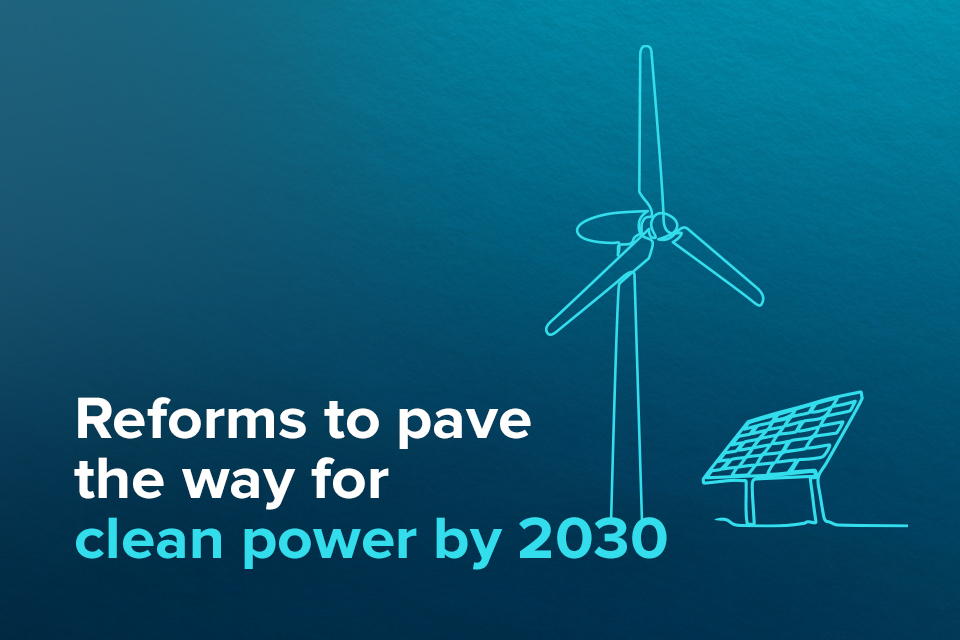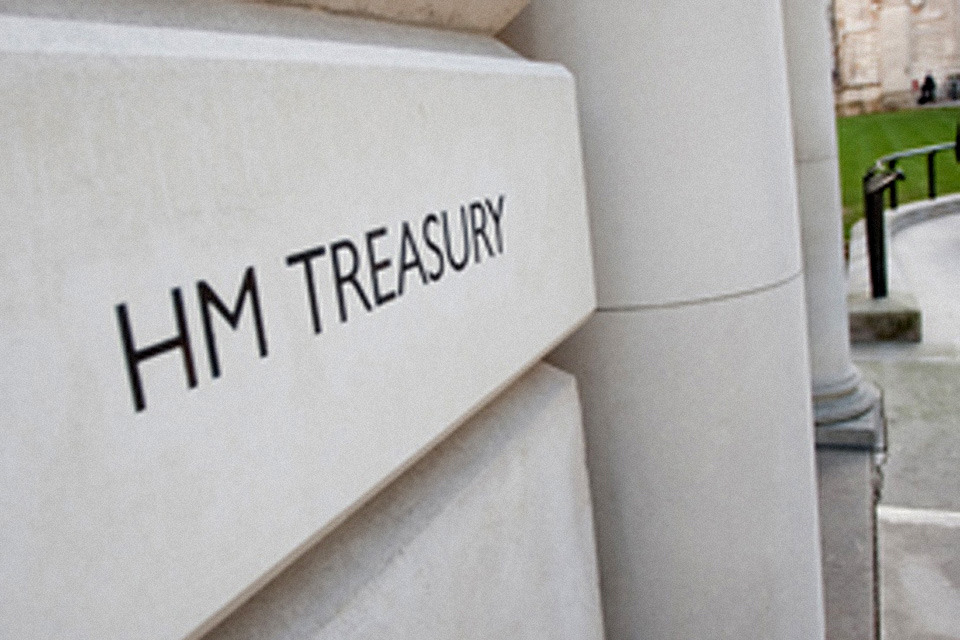-
Chancellor launches coalition to improve sustainable sovereign debt financing to developing economies, shoring up London’s position as development finance leader amid growing global uncertainty
-
Reeves aims to boost private capital mobilisation for development ahead of her attendance of the European Bank for Reconstruction and Development’s annual meeting on 13-15 May in London
In Canary Wharf today (20 February) the Chancellor met with some of the UK’s biggest financial services firms such as Aviva, HSBC and Schroders and urged them to work with development institutions including the European Bank for Reconstruction and Development (EBRD) and British International Investment. To go further and faster in delivering the government’s Plan for Change and put more money in people’s pockets, the Chancellor encouraged firms to seize investment opportunities in emerging markets for Britain’s brightest and best companies.
Co-hosting a roundtable with Odile Renaud-Basso, president of the EBRD, the Chancellor launched the “London Coalition on Sustainable Sovereign Debt”. This will be co-chaired by the Economic Secretary to the Treasury, Emma Reynolds.
The Coalition will bring together government and private sector stakeholders to find innovative solutions to more sustainable sovereign debt financing in developing economies.
Promoting orderly and transparent debt restructuring and more resilient borrowing will mean that emerging economies can make progress meeting their climate and development targets. The Coalition capitalises on London’s financial services expertise and will help cement its position as a global leader in development finance, in turn supporting economic activity and financing investment across the country. Investing in emerging markets themselves can boost UK growth by creating new opportunities for British businesses in areas such as financial services, and boost trade ties with fast-growing economies amid an increasingly uncertain global environment.
Chancellor of the Exchequer, Rachel Reeves said:
Business and government must work together to seize opportunities in emerging markets and kickstart economic growth as part of our Plan for Change.
Today’s roundtable shows how the UK’s world-leading financial centre can help countries unlock new opportunities for our brightest and best British companies to create wealth and drive growth.
President of the European Bank for Reconstruction and Development Odile Renaud-Basso said:
Mobilising private capital is key to meeting global development needs. I’m delighted to co-host UK business leaders with the Chancellor to discuss how multilateral banks like the EBRD can help channel further financing to emerging markets. By joining forces, we aim to deliver the much-needed impact for developing countries while creating new opportunities for businesses from developed economies.
The Chancellor and Renaud-Basso also signed a Memorandum of Understanding setting out cooperation on the EBRD annual meeting and business forum in London, which will be held from 13 to 15 May this year.
The Chancellor will attend the bank’s first annual meeting in London since 2016 where it will see governors approve the bank’s next 5-year strategy and highlight opportunities for UK businesses to work with the EBRD in its key markets such as Ukraine, Poland and Turkey.
Reeves and Renaud-Basso discussed with business leaders how to create the right environment for investment. This is being done at home, for example through reforms to the pensions system which could unlock around £80 billion in productive investment and the launch of the Transition Finance Council led by Lord Alok Sharma. It is also key to work overseas, where British International Investment and UK-backed programmes including MOBILIST and the Private Infrastructure Development Group have unlocked billions in private investment for climate and development around the world. A new Institutional Investor Taskforce will advise government and institutional investors on how they can work together to open up even more of this much-needed investment and establish London as the world’s leading climate and development finance hub.
Reeves outlined the UK’s growth priorities, both at home and abroad, and highlighted the financing tools and instruments to help achieve this such as the National Wealth Fund, which is expected to mobilise over £70 billion in private investment into the high-growth industries of the future. Reeves also underscored the importance of multilateral development banks in helping to mobilise private capital, through working together more effectively as a system and with the private sector.
As the largest institutional investor in Ukraine, the EBRD has also been working with the UK government to support Ukraine’s resilience and recovery. In December, the UK confirmed its participation in a EUR 4bn capital increase which will unlock billions each year to support critical sectors of Ukraine’s economy. The EBRD and Aon also launched an innovative $110m war insurance facility with UK support in the same month to rebuild the country’s insurance market.
Elsewhere, the EBRD invests in 36 economies across three continents including in Central, Eastern and Southern Europe, Central Asia and North Africa. This year it will also begin operations in sub-Saharan Africa.
The roundtable comes ahead of the Chancellor’s visit to Cape Town, South Africa, next week to attend the G20 Finance Ministers and Central Bank Governors meeting. She will be advocating for the UK’s Growth Mission on the global stage and championing how private capital and the role of the City will kickstart economic growth and raise living standards around the world.
Baroness Shriti Vadera, Chair of Prudential PLC and Co-Chair of the World Bank Private Sector Investment Lab, said:
It is critical for governments, international financial institutions, and the private sector to work together to mobilise, at scale and pace, greater levels of finance for climate and development where it is most needed – in emerging and developing markets. I particularly welcome the focus today on practical steps to develop and deploy risk-sharing and blended financial instruments.
Dame Elizabeth Corley, Chair of Schroders PLC, said:
I firmly believe asset managers play a key role in crowding in private capital and unlocking it at scale in emerging markets. Schroders, with its impact pioneer BlueOrchard, is eager to share our expertise in blended finance and impact investing to overcome barriers to private sector investment, redressing some of the world’s biggest challenges like climate change and inequality.





